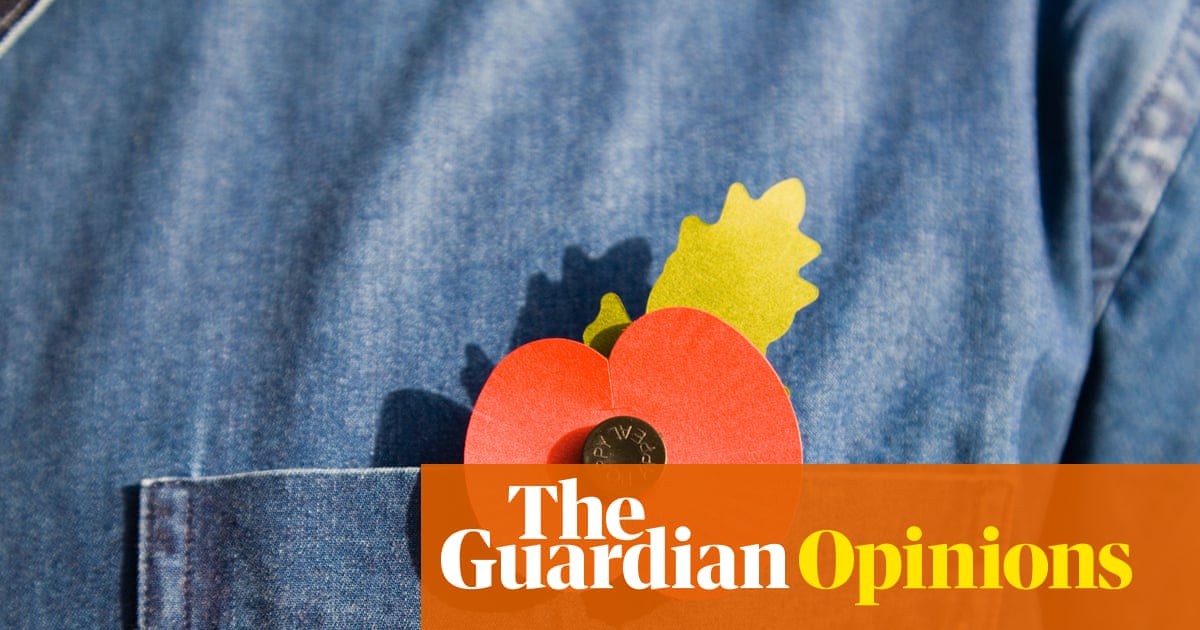
"My line hasn't changed on this for at least 25 years. Wear a poppy, don't wear a poppy, both are legitimate positions. Honouring the fallen is worthwhile. Finding all that performative honour a bit militaristic, and declining to have your love of country elided with celebration of war, even in a tinged-with-sorrow way, also worthwhile. You do you. The world around me has changed immeasurably in that time, however, and what was once a sidebar to the national debate is now a matter of rigid consensus."
"If you were a public figure seen not wearing a poppy, you would probably be proscribed as a terrorist organisation; in the best-case scenario, people would think you were simply incapable of any memory, maybe you had just come out of a coma. And this all seems a little extreme. It surprised me, when I heard the counter-argument to mine from Simon Weston, Falklands veteran that it was basically exactly the same. If people didn't want to wear a poppy, fine, he said (I precis), just don't go on and on about it."
Remembrance season provokes recurring questions about poppy wearing and public conformity. A public figure was criticised for appearing in Parliament without a poppy and defended himself by citing a misplaced poppy in a different suit. Both wearing and not wearing a poppy are presented as legitimate positions. Honouring the fallen is valuable, while rejecting performative or militaristic displays and resisting conflation of patriotism with celebration of war is valid. Public consensus around poppy wearing has hardened, with severe social repercussions for visible non-compliance. A Falklands veteran advised non-wearers to avoid extended public commentary. Security measures around Parliament were increased on Remembrance Sunday.
Read at www.theguardian.com
Unable to calculate read time
Collection
[
|
...
]